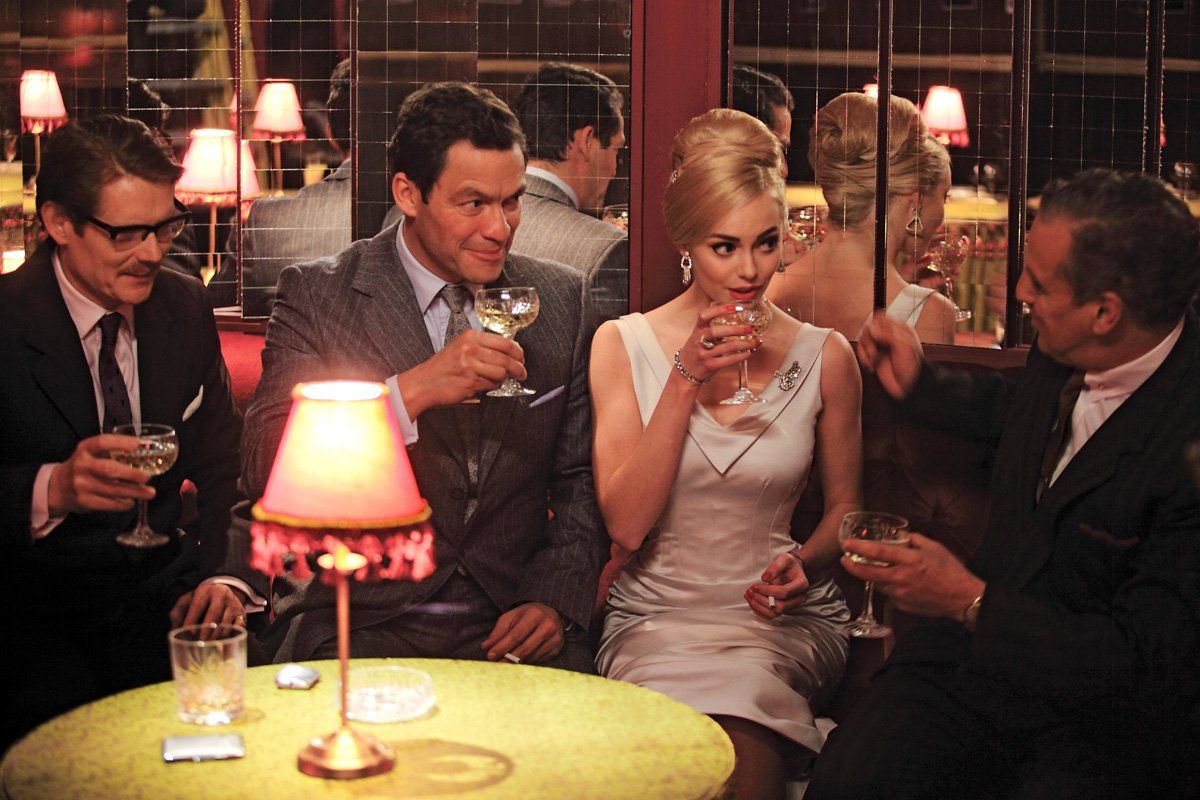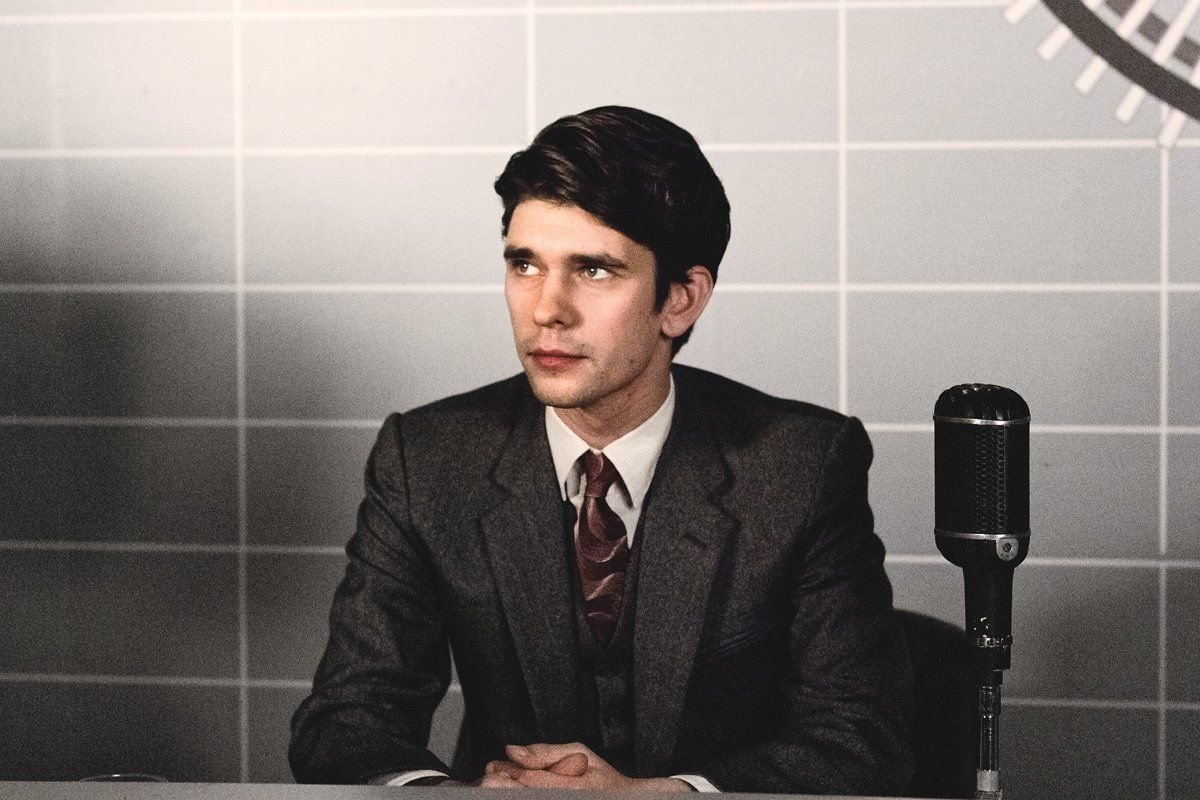
The few Americans who have heard anything about The Hour, which airs on BBC America and takes place inside a late-1950s London newsroom, have probably heard it described as Great Britain's answer to Mad Men. The shorthand makes a certain kind of sense. Both shows unfold in the middle of the 20th century. Both re-create how men and women behaved, and misbehaved, in an Atomic Era workplace. And both are contractually required, I'm told, to deliver at least one shot per episode of backlit cigarette smoke spiraling past rufescent lips and Brylcreemed hairdos and sofas upholstered in bygone shades of ochre and chartreuse.
But there is also a basic difference between the two shows. By choosing to set Mad Men in the world of advertising, Matthew Weiner created a series about how we used to be–or, more precisely, what we used to want. Mad Men looks back on the desires that once drove us, and much of its appeal derives from how dated those desires seem to us now. It is stuck—pleasurably stuck, but stuck all the same—in the past.
The Hour, which has returned for its second season, is not. Instead of dramatizing a medium that turns inward for inspiration, creator Abi Morgan (The Iron Lady, Shame) shaped her show around a field that reaches out into the wider world: journalism. Unlike Don Draper and Peggy Olson, The Hour's characters are not symbols of their own antiquated obsessions. They are people obsessed, as every good journalist is, with finding out the truth about others. "I've allowed journalists to be heroic in the 1950s in a way they are not, unfortunately, allowed to be today," Morgan says. "I was very driven by the heroism of journalists who did investigate. Who didn't feel the pressure of somebody blogging what they were writing about. Who could take the time to unravel and grow a story. And good journalists still do that. There's still room for that kind of journalism. I feel The Hour is kind of a war cry for it." At a time when advertising is ubiquitous and reporting is endangered, this not only makes The Hour the more resonant of the two series. It also makes it a lot more fun to watch.
During its debut season, The Hour followed the team behind a fledgling BBC news magazine—reporter Freddie Lyon (Ben Whishaw), producer Bel Rowley (Romola Garai), and presenter Hector Madden (Dominic West)—as they investigated the Suez Crisis, solved an upper-crust murder mystery, sniffed out a Communist mole, and indulged in a messy office love triangle. The plot was half Broadcast News, half John le Carré, and if you liked that sort of thing—i.e., if you had eyes, ears, and a pulse—you were hooked. The second season picks up 10 months later, in late 1957: the workplace ménage has dissipated, other relationships have started to simmer, and the hot new scoop is all about immigration, the nuclear arms race, battered call girls, and a scandalous SoHo nightclub. This latest installment is even more habit-forming than the last.
The decision to set a scripted drama in the grubby ghetto of journalism works so well on The Hour that it can seem like something of a revelation. But we shouldn't be surprised. Earlier generations were always alive to the dramatic possibilities of the press. Long before cable news, journalistic plotlines propelled many of Hollywood's most vibrant productions: His Girl Friday, Meet John Doe, Foreign Correspondent, Deadline USA, Absence of Malice, The Parallax View, All the President's Men—the list goes on. Even Superman moonlighted as a hack. But as respect for the media has dwindled, so too has the number of shows and films that dramatize what journalists do. Aaron Sorkin should get credit for reanimating the genre last summer with The Newsroom. But Sorkin's show is far more concerned with the failures of postmodern punditry than the ins and outs of breaking news. Morgan doesn't have to tell us that her characters are good reporters. She just shows them reporting—stylized, heightened, noir-ish reporting, but reporting nonetheless. Viewers haven't the faintest clue who beat up Kiki Delane, a showgirl who looks like Janet Leigh and sounds like Amy Winehouse, or what some plutocratic defense contractors have to do with it. But neither do Bel, Freddie, and Hector. We pursue the story together, interview by interview, document by document, scoop by scoop—just like our counterparts on screen.
Each of The Hour's roles is deftly drawn and elegantly played: Rowley, the pioneering, protofeminist producer; Madden, the self-destructive star; Lix Storm (Anna Chancellor), the wry foreign correspondent; and the enigmatic director of news, Randall Brown (Peter Capaldi, doing a remarkable 180 after his foulmouthed turn on The Thick of It). But the beating heart of The Hour is always Freddie Lyon: perhaps the most vivid character on television today, embodied and enlivened by a young English actor, Ben Whishaw, who has become one of the most lucid and magnetic of his generation. Lyon, says Morgan, is a "truth seeker"; a born reporter, "like Orwell or Hitchens, who can't help but interrogate his time." Whishaw describes him as "irrepressible, unrelenting, indomitable ... a person of integrity" who's also "not the most pleasant guy a lot of the time."

When Season 2 begins, Lyon is elsewhere. The fictional Hour is sputtering without him. "There's a certain something lacking," Brown tells Rowley. "Edge. Bite. A prick of the hair on the back of the neck..." Before long, Lyon reappears, hired back by Brown to cohost with (and possibly dethrone) Madden. Freddie reveals that he was in America reading Ginsberg and Kerouac, covering Eisenhower for The Village Voice, cultivating his best impression of a beard. Lyon is still mouthy, and egotistical, and insecure; he still refers to Rowley, flirtatiously, as "Moneypenny." But Bel quickly realizes that Freddie has "rearranged" himself, as she puts it. "I went somewhere," Lyon says. "America. And you know what? Being a nobody in a country where everyone thinks they can be a somebody—that's infectious ... I know what I want now."
"Shake it up, Mr. Lyon," says Brown. "Shake it all up." Hours later, Freddie has exposed the latest fit of government hypocrisy and set another blockbuster story in motion.
This is what makes The Hour so relevant today: the reporter's timeless urge to "shake it all up." Many critics have noted how The Hour's narratives seem to echo current events: chaos in Egypt; prejudice against immigrants; nuclear paranoia; corruption in the English press. But it's the process that's important here, not the product—how the fresh stories beneath those all-too-familiar headlines are uncovered, generation after generation, by dogged, idealistic irritants like Freddie Lyon. By making a hero of him, and of his co-conspirators, Morgan avoids Mad Men's suspended-in-amber inertia. For all its retro beauty, The Hour is never merely a show about the way we were. It's also a show about the way we should be now, and always strive to be.
Uncommon Knowledge
Newsweek is committed to challenging conventional wisdom and finding connections in the search for common ground.
Newsweek is committed to challenging conventional wisdom and finding connections in the search for common ground.
About the writer
To read how Newsweek uses AI as a newsroom tool, Click here.






